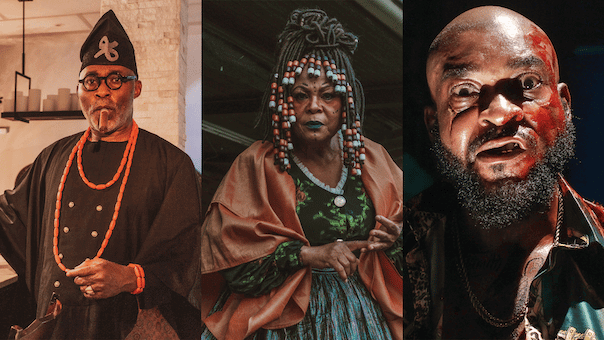Nigeria’s film industry, commonly known as “Nollywood”, is the world’s second-largest after Hollywood, with a financial value of more than $6.4 billion.
It is one of the fastest-growing movie industries in the world, said Young-Tobi Ekechi, managing director and chief executive officer of First Generation Mortgage Bank (FGMB), adding that it is one of the biggest employers of labour in the country.
A movie production employs an average of 200 persons or more from pre-production to post-production. The National Film and Video Censors Board (NFVCB) said it received 553 movies produced by the Nigerian film industry in the second quarter of 2022.
Multiplying the average of 200 persons by 553 movies produced in that quarter, Prime Progress gathered that 110,600 might have been employed in one quarter alone.
At a two-day leadership masterclass training for Nollywood actors, Femi Gbajabiamila, speaker of Nigeria’s House of Representatives, said the film industry contributes 2.3% to the nation’s Gross Domestic Product (GDP).
These figures have improved the relevance of the film industry and attracted global streaming platforms and investors.
With the launch of Netflix and Prime Video, Nollywood originals have been included on these video streaming platforms with increased collaboration with Nollywood directors and producers.
In 2022, Labari Africa Productions, a newly launched Nigerian film production company, set up a $3 million fund to finance Nollywood.
Whereas movies were shot on a relatively low budget in the early 90s, during the inception of the Nollywood industry, the trend has changed.
Films are grossing an incredible amount at the box office with jaw-dropping production budgets, leading to Nigerian content being recognized in European film festivals and elsewhere.
This has attracted more investors who are churning out funds to sponsor content while ensuring outstanding overall production quality to compete for global recognition and awards.
The 1992 Nollywood blockbuster hit, ‘Living in Bondage’, primarily credited for revolutionizing the Nigerian movie industry, was shot on a budget of just $12,000 (N118,920 at the time).
Tunde Kelani, a veteran movie director, revealed that the production budget for his 2022 movie ‘Ayinla’ was N41 million. That’s a huge margin of difference between both movie projects.
There is no doubt that it costs a lot to make a good movie at the moment, taking into account the various elements that bring a film to life.
So far, the economy has benefited from these investments as the industry employs more people to meet its increasing demand.
Many Nigerians are impressed with the improved quality of films and the ease of accessing movies from the comfort of their homes.
“Back then, producers were concerned about quantity over quality. Things have changed; there is improvement in sound, lighting and production design,” said Imosili James, an avid lover of Nollywood movies.
Movies such as Blood Sisters, Far from Home, Anikulapo, Shanty Town and others are shifting the discourse, making gains and positioning the industry for global success.
Currently, the Nigerian film industry is not showing any signs of slowing down, as thousands of films are produced each year.
Nigeria's film industry, known as Nollywood, is the world's second-largest after Hollywood, with a financial value exceeding $6.4 billion. It is one of the fastest-growing movie industries globally and a significant employer in Nigeria, engaging around 200 people per production. In the second quarter of 2022, 553 movies were produced, potentially employing over 110,000 individuals in that period.
The industry contributes 2.3% to Nigeria’s GDP and has attracted interest from global streaming platforms such as Netflix and Prime Video, which now feature Nollywood originals. Investments in Nollywood have increased, with notable investments like the $3 million fund by Labari Africa Productions in 2022.
While early Nollywood films had minimal budgets, current productions often have substantial financial backing, leading to higher-quality films recognized at international film festivals. Economic benefits include increased employment and more investment, enhancing film quality and accessibility for viewers.
Improvements in production quality are noticeable, with enhanced sound, lighting, and design. Notable films like Blood Sisters, Far from Home, Anikulapo, and Shanty Town exemplify the industry’s growth. Nollywood continues to produce thousands of films annually, showing no signs of slowing down.






